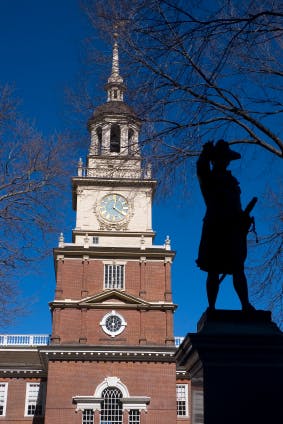By John Hollon
Who would have thought that Philadelphia would be the one place in America where female executives would get a fair shake?
Or as Philadelphia Inquirer business columnist and blogger Mike Armstrong put it, “It’s quite possible that Philadelphia has entered the era of the She-E-O.”
You don’t need to be a rocket scientist, business school professor, or HR savant to know that women don’t get promoted into the CEO ranks the way men do, and there are lots of reasons for it, although one jumps out at me above all others. It’s this: organizations keep recycling and rehiring the same guys – emphasis on guys – despite how many times they may have underperformed (aka, failed miserably) as CEOs elsewhere.
This was the problem I had with former Hewlett-Packard head Mark Hurd getting snapped up so quickly to be president of Oracle after he lost his CEO spot with HP under mysterious circumstances last summer. It’s the 21st Century equivalent of the Divine Right of Kings, I wrote here on TLNT last month, and it drives me crazy. To wit:
Yes, it’s wonderful when someone out-of-work can quickly find a job in this mediocre-to-crummy economy, but why does it seem that the only people getting snapped up so quickly are former CEOs who just walked away from their old job with a multi-million dollar severance package?
There is a revolving door when it comes to CEOs because there is this overblown notion in this country that CEO skills are something handed down from God and are incredibly rare and hard to find.
That’s complete and total nonsense of course, and one only needs to look at the track record of all-too-many recycled CEOs (like the guy who ran Circuit City into the ground, or much of Bob Nardelli’s tenure at Home Depot and Chrysler).”
Because so many men are CEOs, the recycling of failed CEOs really only benefits men. It’s one of the big reasons why there are only 13 female CEOs in the Fortune 500, and only 27 total if you extend it to the Fortune 1000. That’s just 2.7 percent, and it is despite the fact that women make up 47 percent of the workforce and 40 percent of the managers, according to the Government Accountability Office.
A great trend for Philadelphia businesses
That’s why it’s great to see this mini-trend taking place in the greater Philadelphia area, according to Mike Armstrong in The Philadelphia Inquirer:
When Campbell Soup Co. tapped Denise M. Morrison Tuesday to be its chief operating officer and likely next chief executive officer, it meant that three of the 10 biggest and best-known public companies based in the region will be headed by women as of next summer.
The others are Sunoco Inc., which hired Lynn Laverty Elsenhans as CEO in July 2008, and DuPont Co., which promoted Ellen Kullman to CEO in September 2008.
Combined, the three executives are entrusted with about $57 billion of shareholder value – greater than the market capitalization of Comcast Corp., the most valuable local company at $50 billion…
They aren’t the only local examples of powerful female leaders. Women run some of Philadelphia’s biggest institutions. Amy Gutmann has been president of Philadelphia’s biggest employer, the University of Pennsylvania, since 2004, having succeeded a decade of Judith Rodin. Ann Weaver Hart has been in charge of Temple University since 2006…
The Philadelphia region isn’t home to many big Fortune 500 companies. Only 14 companies with headquarters here appeared on the most recent list. That makes it all the more remarkable that Philadelphia could claim the greatest concentration of women CEOs among the Fortune 500 in mid-2011.”
Yes, it’s always sunny in Philadelphia, as the TV show says, and that’s a good thing if you’re like me and feel the good-old-boy network of failed and recycled CEOs needs to end — and end soon. I’m tired of so many high-priced losers continuing to get yet another ride on the CEO merry-go-round.
I don’t know what it is about the City of Brotherly Love that seems to make it more open to organizations promoting women into top roles, but we should bottle whatever is in the water there and make every board of directors’ member in America take a swig. Drinking something other than the CEO Kool-Aid would probably do them some good.
